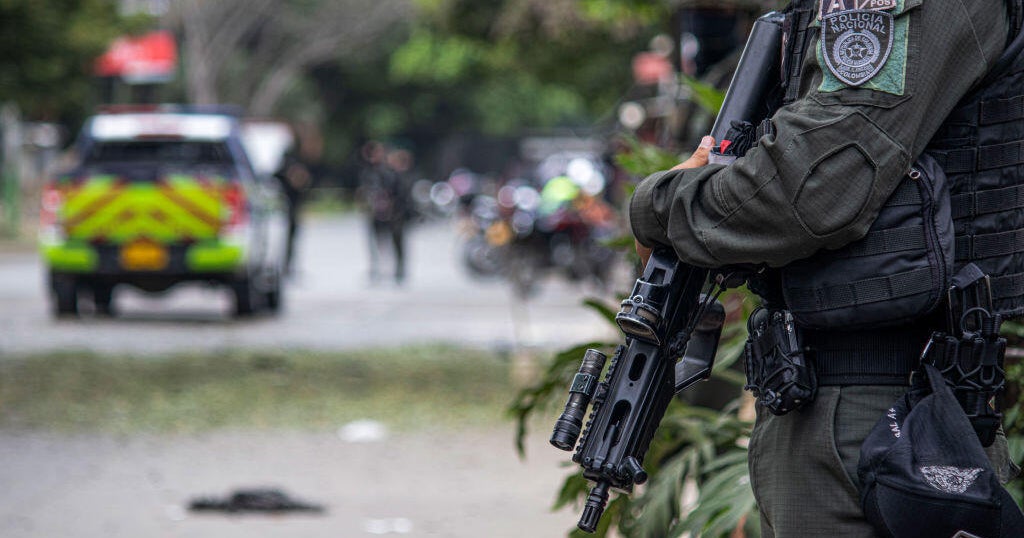Colombian authorities recently apprehended an alleged leader of the Italian ‘ndrangheta mafia, marking a significant development in the fight against organized crime in Latin America. The individual, identified as Giuseppe Palermo, also known as “Peppe,” was sought under an Interpol red notice and was allegedly involved in the management of cocaine trafficking routes to Europe. His arrest follows a collaborative operation involving Colombian, Italian, and British law enforcement agencies, as well as Europol.
| Article Subheadings |
|---|
| 1) Details of the Arrest |
| 2) Implications of Palermo’s Capture |
| 3) The Role of the ‘ndrangheta in Europe |
| 4) Cocaine Production Statistics |
| 5) International Cooperation in Law Enforcement |
Details of the Arrest
On Friday, Colombian law enforcement officials confirmed the capture of Giuseppe Palermo in Bogotá. This coordinated operation involved the collaboration of multiple international authorities, specifically from Colombia, Italy, and the United Kingdom, aided by Europol. The arrest unfolded on a busy street, demonstrating the high-stakes nature of the operation and the international ramifications it entails. Law enforcement agencies had been tracking Palermo for years, following his connections to the cocaine trade.
Implications of Palermo’s Capture
The apprehension of Palermo is significant as it disrupts one of the most tightly-knit cells of the ‘ndrangheta mafia, which has been a dominant force in the global drug trade. Carlos Fernando Triana, head of the Colombian police, emphasized that Palermo was critical in overseeing the cocaine supply chain, from procurement in coca-producing countries to the distribution networks leading into Europe. His capture is expected to have far-reaching consequences for the operations of the ‘ndrangheta, potentially leading to a power vacuum that could invite further violence or competition among rival criminal organizations.
The Role of the ‘ndrangheta in Europe
The ‘ndrangheta, originating in Calabria, Italy, is recognized as one of the most powerful and secretive criminal organizations in the world. Its influence has notably expanded into Europe, where it plays a central role in the cocaine market. The organization is often involved in not just drug trafficking but also in extortion, money laundering, and other serious criminal activities. The current dynamics in Europe surrounding drug supply chains could shift with the arrest of key figures like Palermo, as the ‘ndrangheta faces increased scrutiny from law enforcement agencies.
Cocaine Production Statistics
According to recent reports from the United Nations, illegal cocaine production in Colombia has reached an alarming 3,708 tons in 2023, marking a 34% increase from the previous year. This escalation has been fundamentally linked to the expansion of coca leaf cultivation. Colombia, being the largest producer of cocaine in the world, continues to face challenges in combating this thriving industry, which is deeply embedded in the rural economy. The spike in production signifies ongoing struggles with organized crime and points to the need for comprehensive approaches to tackling drug trafficking.
International Cooperation in Law Enforcement
The successful capture of Palermo demonstrates the potential effectiveness of international law enforcement cooperation. By working collaboratively, agencies from various countries can share intelligence and resources to target high-profile criminals more effectively. Operations like this one are a testament to the commitment of global agencies to tackle organized crime on a broad scale, highlighting the necessity for coordinated action among nations to combat transnational criminal networks.
| No. | Key Points |
|---|---|
| 1 | The arrest of Giuseppe Palermo is a significant blow to the ‘ndrangheta mafia. |
| 2 | Palermo was instrumental in overseeing cocaine shipments from South America to Europe. |
| 3 | Illegal cocaine production has surged, with Colombia reporting a 34% increase in 2023. |
| 4 | International cooperation among law enforcement agencies is crucial in combating organized crime. |
| 5 | The implications of this arrest could affect the cocaine distribution networks significantly. |
Summary
The apprehension of Giuseppe Palermo marks a pivotal moment in the ongoing battle against transnational organized crime, particularly in relation to the cocaine trade. As authorities continue to grapple with the complexities of this issue, the international cooperation demonstrated in this operation may serve as a model for future efforts. The rise in cocaine production further underscores the persistent challenges facing law enforcement, requiring innovative strategies to effectively address this global crisis.
Frequently Asked Questions
Question: Who is Giuseppe Palermo?
Giuseppe Palermo is an alleged leader of the Italian ‘ndrangheta mafia, involved in overseeing cocaine shipments and trafficking routes to Europe.
Question: Why is the arrest of Palermo significant?
Palermo’s capture is significant because it disrupts one of the crucial operations in the ‘ndrangheta, potentially affecting the global cocaine trade.
Question: What are the statistics surrounding cocaine production in Colombia?
In 2023, Colombia reported a cocaine production rate of 3,708 tons, which represents a 34% increase compared to the previous year.


